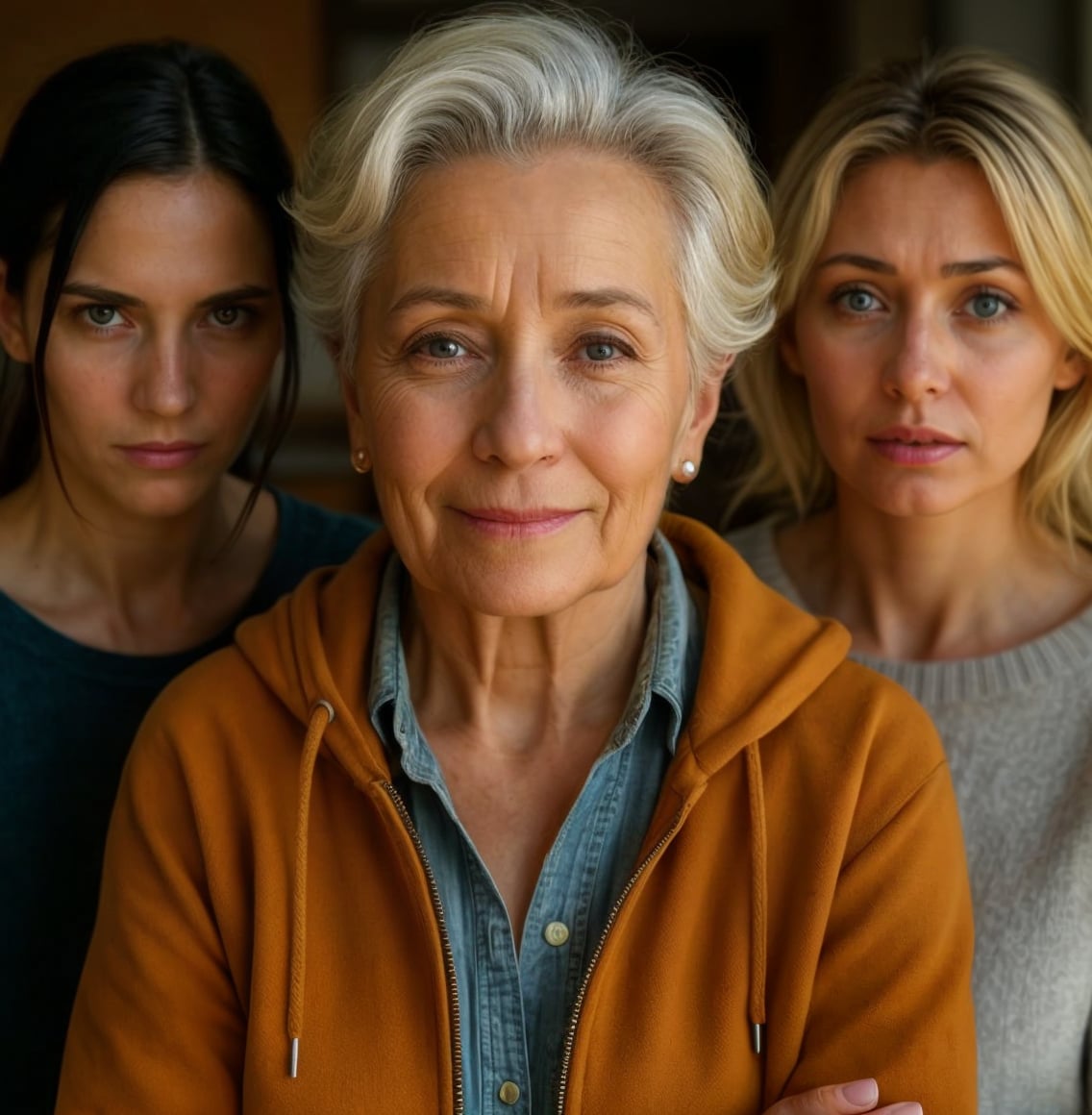“Triplets, Valentina Nikolaevna? You’re a hero! And all three are healthy—a boy and two girls! It’s nothing short of a miracle!”
“I’m just a mother,” I replied softly, smiling through the haze of exhaustion, struggling to process the whirlwind of the past eighteen hours.
The miracle was undeniable, yet it also filled me with dread. The initial days in the maternity ward became a blur, an endless mix of overwhelming fatigue and quiet happiness.
I lay on a stiff hospital bed, gathering strength after the intense delivery, imagining the expression on Fedya’s face upon seeing our babies.
Lyosha would surely have his father’s eyes, while the girls, I was certain, would have my dark hair. The doctors promised to bring them to me soon after completing their routine checks.
The next day came—but Fedya didn’t appear. I sent word through the local post office, wondering if perhaps they couldn’t reach him. Forestry management often had him tied up; perhaps he’d been delayed by inspections.
On the third day, a package arrived. Inside, compote, cheese-filled pastries, and clean swaddling clothes. But it wasn’t from Fedya—it was from neighbors. A short note read, “Fedya’s started drinking again, Valya. Grandpa Grigory will pick you up. Don’t worry, we’re here for you.” Signed by Tanya, Vera, and Zoya.
Cold sweat trickled down my back. Just five days ago, I had been an ordinary village woman expecting her first child. Now, suddenly, I was a mother to three infants, abandoned by my own husband. Betrayal seeped through me, slow and chilling.
Outside, snow began drifting silently downward.
“Valentina,” a nurse called gently from the corridor, “Grigory’s waiting for you downstairs. He brought a cart—imagine that! By the side entrance near the kitchen.”
With quick, expert movements, the nurse helped wrap up my tiny, fragile newborns. “Here’s your oldest daughter,” she said, gently handing me Alyonka, the quiet one born two minutes ahead of her sister.
The second girl, Vika, I had named hoping she’d endure life’s challenges, and my son, Lyosha, carried my grandfather’s name.
Grandfather Grigory stood next to his old cart, patiently stroking his horse. Seeing me, he dropped his cigarette into the snow.
“Come on, mother, let’s get going,” he grumbled softly, carefully laying my babies into the blankets prepared in the cart.
The ride was silent. The snow thickened, though the cart moved smoothly through the white landscape. My heart clenched when our small home finally appeared.
“Steady now,” Grandfather said gently, helping me down.
I stepped inside the house first and froze. Fedya stood there, his belongings scattered around an open suitcase. He barely glanced at me, eyes empty.
“What’s happening?” My voice trembled weakly.
“I’m not prepared for this,” he murmured, looking away. “I didn’t plan on three. You’ll handle it somehow. I’m sorry.”
Grandfather Grigory placed the babies near the stove, his face darkening with anger. “Have you gone mad, Fedya? Leaving your wife with three newborns?”
“Stay out of it,” Fedya spat, grabbing his suitcase.
“Fedya,” I whispered, “at least see your children.”
He glanced briefly at the cradles, turned abruptly, and disappeared into the swirling snow, vanishing from my life.
My knees buckled, and I sank onto the floor, emptiness swallowing me whole.
The first year became a test of endurance. Days blurred together with endless feedings, washing, sleepless nights. Yet, somehow, we survived, supported quietly by the kindness of neighbors. Every morning, someone left milk, grain, or firewood on my doorstep.
Tanya visited often, showing me how to manage the feedings when my milk wasn’t enough. Grandfather Grigory checked on us daily, repairing what he could around the house.
Life slowly became manageable. By spring, the babies began smiling. Alyonka, wise beyond her months, Vika demanding attention, and Lyosha endlessly curious.
In time, I regained some independence. I found work part-time at the village library. Slowly, hope returned.
Then, one winter, Andrey arrived in the village—a skilled locksmith who visited the library frequently, exchanging books and bringing handcrafted wooden toys for my children. His quiet presence gradually filled the void Fedya left.
One evening, beneath a sky filled with stars, Andrey asked gently, “Valentina, may I stay here permanently? I’ve grown fond of your children—they feel like mine.”
For the first time in years, warmth returned to my heart.
Fifteen years passed swiftly. Our humble home became lively, filled with laughter. Lyosha, a tall teenager now, eagerly learned skills from Andrey. Alyonka prepared for college, aspiring to be a teacher. Vika dreamed freely, writing poems.
Then, unexpectedly, Fedya reappeared one day. Broken and weary, barely recognizable, he approached hesitantly.
“Could you help me out, Andrey? Just some money until pension day,” he rasped.
Lyosha frowned, not recognizing his biological father. Alyonka stepped protectively forward, while Vika clung to Andrey.
“Here,” Andrey offered calmly, handing Fedya money.
Fedya glanced at the children, eyes searching, yet found nothing familiar. He shuffled away, disappearing once again.
That evening, surrounded by my loving family, I understood clearly why everything had happened. Every hardship, every tear had led us here—to this life rebuilt, solidly founded on love and strength.
